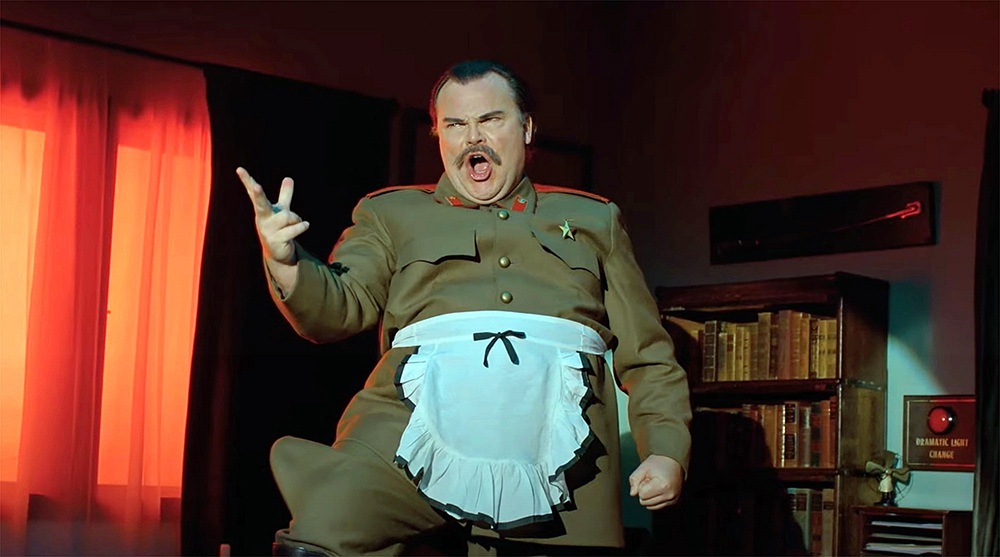Mel Brooks is the king of the dad joke. The 96-year-old writer/director/producer comes by it honest. He cut his comic teeth in the Catskill mountains of New York, where former vaudevillians could make a good living doing stand-up comedy for the mostly Jewish New Yorkers who would flee the city in the summer for a weekend at a lake resort. He was there at the beginning of TV comedy — his first gig was in 1949, writing jokes for Sid Caesar on the now-defunct DuMont Network.
The Catskills style of comedy was quick, broad, and punchy. Designed to keep the attention of vacationers on their third martini, it translated well to television. One of the running bits Brooks did with his friend and co-writer Carl Reiner was “The 2000 Year Old Man.” Reiner would ask questions about historical events, and Brooks would crack wise about meeting Jesus or the Dark Ages.
The bit, which always killed, would eventually evolve into the 1981 film, History of the World, Part I. In the episodic skit film, narrated by Orson Welles, Brooks plays four different characters — Moses, a greek philosopher named Comicus, the Grand Inquisitor of the Spanish Inquisition, and King Louis XVI. Brooks was coming off of a decade when he made some of history’s greatest comedies, like Young Frankenstein and Blazing Saddles. History of the World, Part I never quite reaches those heights, but it has some glorious moments, like Moses dropping one of the stone tablets God gave him and quickly revising the number of commandments from 15 to 10. History of the World, Part I was kept alive through endless reruns on cable TV, but Brooks always denied he intended to do a Part II — the number was part of the joke.
Then, almost 40 years later, Hulu picked up History of the World, Part II. The concept works much better as a 30-minute sketch show than it did as a film. At 96, Brooks is more about attracting good collaborators than one-man-banding it. Wanda Sykes, Nick Kroll, and Ike Barinholtz produce and replace Brooks in the multi-role role. The Mindy Project’s David Stassen is the showrunner, and the writing staff is enormous. In the first episode, William Shakespeare pays a visit to his writers room, where a new recruit tries to hide that she’s actually a woman — a self-aware commentary on how this kind of traditional comedy has long been made.
Teasing away Borscht Belt comedy’s sexism and homophobia while keeping its vital technical aspects and still allowing some raunch is difficult, but for the most part, Brooks and co. are up to it. Brooks’ comedy was always deeply anti-racist, and episode 1 closes with the show’s brain trust posing as TV announcers at the Olympics commenting on “Hitler on Ice,” the infamous one-off gag that closed History of the World, Part I.
Any comedy nerd worth their tight five would give their schwartz to work with Brooks, so the show is studded with cameos. Jack Black slays as Stalin, who gets a musical number in the multi-episode story arc about the Russian Revolution that somehow combines Fiddler on the Roof with Reds. In a stroke of casting genius, comedian and national treasure George Wallace plays racist governor George Wallace opposite Wanda Sykes as Congresswoman Shirley Chisholm. Seth Rogen is fun as Noah, who thinks God’s “two of every kind” plan is a lot of hassle, so he just collects an ark full of cute dogs instead.
Brooks has always been a “throw everything against the wall and see what sticks” kind of guy, and History of the World, Part II is wildly uneven. The extended story of Ulysses S. Grant (Ike Barinholtz) trying to find a drink is tedious, until it ends with a big musical number. If you’re a Brooks fan, or if you’re really missing Drunk History, History of the World, Part II is for you.
History of the World, Part II is streaming on Hulu.
